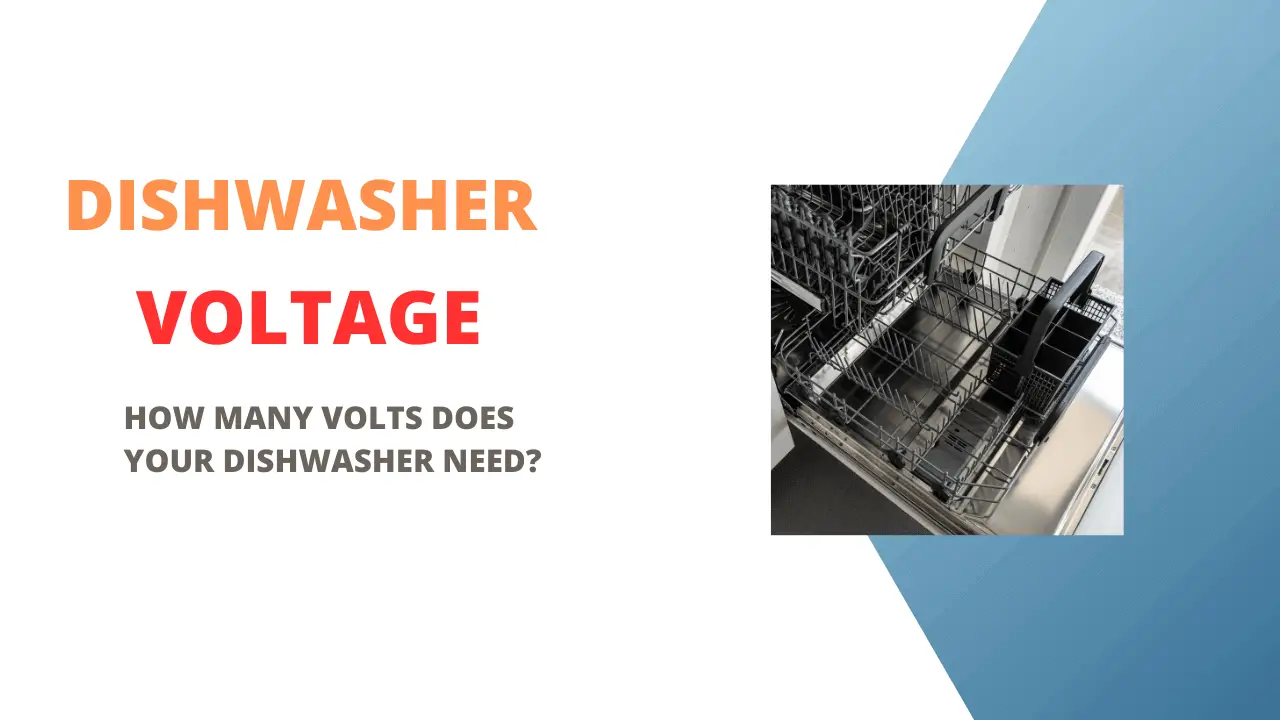Dishwashers have become an indispensable part of modern households, offering convenience and time-saving benefits.
However, many homeowners may wonder about the electricity they consume and its impact on their energy bills. In the USA, most household appliances, including dishwashers, are designed to operate at a standard voltage of 120 volts.
In this article, we’ll explore the voltage requirements of dishwashers, factors affecting their power usage, energy efficiency considerations, and tips for making informed choices to save energy and money.
How Dishwashers Work
Dishwashers are designed to automate the process of washing dishes, pots, and utensils. They consist of several essential components, including spray arms, a detergent dispenser, a heating element, and a pump.
As water is sprayed onto the dishes, the detergent helps break down grease and grime. The heating element then warms the water to enhance the cleaning process.
Understanding the energy consumption of these components is vital in comprehending the overall power usage of a dishwasher.
Understanding Voltage in Dishwashers
Voltage refers to the electrical potential difference that drives the flow of electricity in an appliance. For household appliances, including dishwashers, the standard voltage in the USA is 120 volts.
Some heavy-duty appliances might require 240 volts, but dishwashers typically operate at 120 volts. It is essential to ensure that your dishwasher is compatible with your home’s electrical supply to avoid damage or safety hazards.
Read also my article: Electrical Safety in the Kitchen: Does Your Dishwasher Need GFCI Protection?
Factors Affecting Dishwasher Voltage
The voltage requirements of a dishwasher are influenced by various factors, including its size, energy efficiency, and technological features.
Larger dishwashers with more advanced settings might demand more electricity to handle larger loads effectively.
However, modern appliances are designed with energy-saving features, which can significantly impact their power consumption and overall efficiency.
Dishwasher Power Consumption
Dishwashers are rated based on their power consumption, typically measured in watts or amperes. The wattage indicates the amount of power a dishwasher uses during operation, while amperage represents the electrical current flowing through the appliance.
By checking the wattage and amperage ratings, consumers can estimate energy usage and calculate electricity costs.
Voltage Standards in the USA

In the United States, residential areas are supplied with 120 volts through standard electrical outlets. However, some larger appliances like ovens and dryers might require 240 volts.
Dishwashers, being smaller household appliances, are designed to operate at the standard 120 volts, making them compatible with most homes.
Finding Voltage Information for Your Dishwasher
To determine the voltage requirement of your dishwasher, refer to the manufacturer’s label on the appliance.
The label should provide detailed information about voltage, wattage, and amperage ratings. Additionally, the user manual or the manufacturer’s website can be helpful resources for finding the necessary information.
Dishwasher Energy Efficiency and Savings
Energy Star ratings play a crucial role in identifying energy-efficient dishwashers. These ratings indicate that the appliance meets or exceeds specific energy-saving standards set by the Environmental Protection Agency (EPA).
By choosing an Energy Star-certified dishwasher, homeowners can save on their energy bills while reducing their environmental footprint.
Troubleshooting Voltage-related Issues
Occasionally, homeowners might encounter voltage-related problems, such as circuit overloads, tripped breakers, or blown fuses.
It is essential to address these issues promptly to ensure the safe and efficient operation of the dishwasher. In case of electrical problems, seeking assistance from a professional electrician is highly recommended.
Upgrading and Installing a Dishwasher
When upgrading or installing a new dishwasher, it is crucial to consider voltage compatibility. Most dishwashers sold in the USA are designed for the standard 120-volt electrical supply.
However, if you are replacing an old dishwasher or installing a new one, it is advisable to hire professional installers to ensure proper electrical connections and safety.
Conclusion
Understanding the voltage requirements of your dishwasher is essential for efficient operation and safety.
By choosing an energy-efficient dishwasher and adopting smart energy practices, homeowners can not only save on their electricity bills but also contribute to a greener environment.
Always consult the manufacturer’s information and seek professional assistance when necessary to ensure a seamless and energy-efficient dishwashing experience.
Want to learn more about electricity? Check my YouTube channel!
Are You An Electrical Engineer or Electrician?
Install my Free On Google Play Now! It’s 100% Free
The staff I recommend (Amazon Affiliate Links to products I believe are high quality):
- Economy 120 Volt/60Hz AC Power Source – Step-Down Voltage & Frequency Converters 1800W
- UNI-T Digital Multimeter Tester UT139C
- 50-Amp Extension Cord for RV “100ft”
- Voltage Stabilizer 110/220v
- Hair Dryer “best selling“
- TOSHIBA EM131A5C-BS Countertop Microwave Ovens
Disclaimer: This contains affiliate links to Amazon products. I may earn a commission for purchases made through these links.



